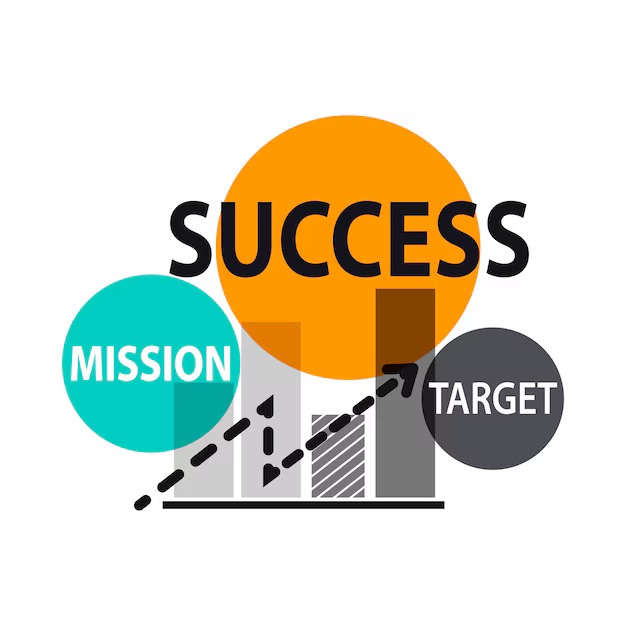In the dynamic landscape of modern business, team performance and collaboration play a pivotal role in achieving organizational success. However, even the most effective teams encounter areas for improvement that can hinder their productivity and effectiveness. This article delves into key areas where teams can enhance their performance, including communication and collaboration, goal setting and alignment, conflict resolution strategies, skill development and training, accountability and ownership, feedback and performance evaluation, and diversity and inclusion initiatives. By addressing these aspects proactively, teams can foster a culture of continuous improvement and elevate their collective performance to new heights.
# Areas of Improvement in Team
## 1. Communication and Collaboration
### Improving Team Communication
Want to avoid those awkward email chains that make you question your sanity? Improve team communication by being clear, concise, and considerate in your messages. Remember, emojis are a universal language.
### Enhancing Cross-Functional Collaboration
Cross-functional collaboration doesn’t have to feel like herding cats. Encourage team members to share their knowledge and expertise openly, and watch the magic of collaboration unfold. Plus, a little team-building karaoke never hurt anyone.
## 2. Goal Setting and Alignment
### Setting Clear and Achievable Goals
Setting goals that are as clear as mud won’t get you far. Define specific, measurable, achievable, relevant, and time-bound (SMART) goals to keep everyone on track. And remember, team goals are like pizzas – everyone wants a slice.
### Ensuring Team Alignment with Organizational Objectives
Just like making sure everyone is on the same page in a group project, aligning team goals with the organization’s objectives is key. It’s like playing a game of chess – strategize, communicate, and make those winning moves together.
## 3. Conflict Resolution Strategies
### Implementing Effective Conflict Resolution Processes
Conflict doesn’t have to be a four-letter word. Implementing effective conflict resolution processes can turn those awkward moments into opportunities for growth and understanding. Remember, compromise is key – just like deciding on pizza toppings.
### Promoting Constructive Conflict Management
Instead of playing the blame game, promote constructive conflict management. Encourage open dialogue, active listening, and finding solutions together. Remember, a little laughter can go a long way in diffusing tension – just like a good dad joke.
## 4. Skill Development and Training
### Identifying Skill Gaps and Training Needs
Feeling like you’re stuck in a rut with your skills? Identify areas for growth and development within your team. Remember, we’re all a work in progress – just like that Pinterest DIY project you started six months ago.
### Investing in Continuous Learning and Development
Invest in your team’s growth like you’re buying GameStop stocks – make it count. By providing opportunities for continuous learning and development, you’re not just building skills, you’re building a powerhouse team ready to take on whatever challenges come their way. Remember, knowledge is power – but snacks are essential for brain fuel.
5. Accountability and Ownership
Fostering a Culture of Accountability
Accountability is like the secret sauce that keeps a team running smoothly. It’s about owning up to your actions and responsibilities, rather than playing the blame game. Foster a culture where team members feel empowered to take ownership of their work and hold themselves accountable. This creates a sense of trust and reliability within the team.
Encouraging Ownership of Tasks and Projects
Imagine a world where everyone in your team feels a sense of ownership over their tasks and projects – sounds dreamy, right? Encourage team members to take initiative, make decisions, and see things through from start to finish. When individuals feel a personal stake in their work, they are more likely to go above and beyond to ensure success.
6. Feedback and Performance Evaluation
Providing Timely and Constructive Feedback
Feedback is like a gift wrapped in a giant bow – it might be uncomfortable to give or receive, but it’s essential for growth. Provide timely and constructive feedback to your team members. Be specific, focus on behaviors rather than personalities, and always aim to help them improve. Remember, feedback is a two-way street, so be open to receiving it too!
Evaluating Team Performance and Individual Contributions
It’s like giving your team a report card, but instead of letter grades, it’s about recognizing their hard work and contributions. Evaluate team performance regularly to identify strengths, areas for improvement, and celebrate successes. Acknowledge individual efforts and contributions to show appreciation and motivate continued excellence.
7. Diversity and Inclusion Initiatives
Promoting Diversity and Inclusion Awareness
Diversity is like a colorful bouquet of flowers – each unique element adds beauty and richness to the whole. Promote awareness about diversity and inclusion within your team. Encourage open discussions, celebrate different perspectives, and create a safe space where everyone feels valued and respected.
Implementing Inclusive Practices and Policies
Inclusion is like a warm hug on a cold day – it makes everyone feel welcome and appreciated. Implement inclusive practices and policies that ensure equal opportunities for all team members. From recruitment and career development to team dynamics and decision-making, prioritize creating a culture where diversity is not just accepted, but celebrated.
In conclusion, by recognizing and actively working on areas of improvement within their team, organizations can cultivate a more cohesive and high-performing workforce. Embracing a culture of open communication, continuous learning, and inclusivity can drive positive change and lead to sustained success. By implementing the strategies outlined in this article, teams can navigate challenges more effectively, boost morale, and ultimately achieve their shared goals with greater efficiency and harmony.

